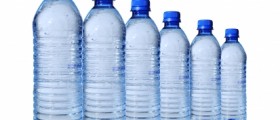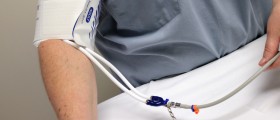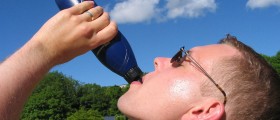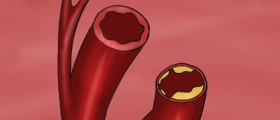
In this article, we will try to explain as easily as we can the problem of dehydration. We all know that HYDRA in Greek means water, so the logical conclusion would be that dehydration is the state when there isn’t enough water in the body. The fact that three quarters of our body present water is interesting. The cells of the body (intracellular space) consist mostly of the water and the rest of it is in extracellular space. That space is made of blood vessels and the spaces between cells.
Why does our body dehydrate and when does it happen? When the input of water is smaller than the output, dehydration occurs. Our body is constantly changing and doing something, even when we sleep, and this is particularly obvious in the case of water. We lose water from the body when breathing and wet air leaves the body, when we sweet a lot, when we go to a toilet to get rid of the waste products of our body. In every day life a person can imagine a healthy life without these body activities, but the spent amount of water is replaced by water that we drink. If the water is lost in the blood vessels, then it can be compensated but only for a short period of time. If the body has been without water for a longer period of time, then our body sends signals that it needs water. First signal is thirst, and then our urination becomes limited because our body knows that it doesn’t have enough water and is saving supplies. The color of urine changes as well, it becomes more yellow. That is also followed by some other symptoms such as dry mouth, inability to produce tears when crying, lack of sweating, muscle cramps, nausea and vomiting and heart palpitations.
If dehydration isn’t treated, body slowly begins to shut down. First, confusion and weakness appear, and then follows coma and failure of organs and death at the end. Every doctor and general practitioner can diagnose dehydration and the stage of dehydration. Basic evaluations can include mental status test, vital signs - which change when the body is dehydrated; temperature, and screening of skin. And when a doctor is dealing with dehydration in infants, then he may do additional tests such as looking for a soft spot on the skull, muscle tone or a loss of sweat. Pediatricians may often weight children, because due to dehydration their body weight may change or vary.

















Your thoughts on this
Loading...